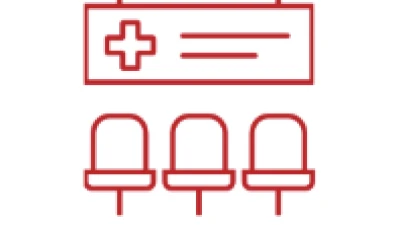Bachelor's

What you’ll learn
Your studies will include the following classes, exams and practical training.
Core classes
Anatomy, physiology, microbiology, chemistry, nutrition, psychology, and liberal arts are some of the courses you’ll take.
Hands-on experience
As part of your curriculum you’ll work in a lab and practice in a clinic, or other healthcare facility.

Patient care
You’ll work under the supervision of doctors and other Registered Nurses administering medication and injections, and taking care of patients and their families.
Managerial
With a BSN, it’s likely you’ll be prepped for a leadership role and gradually take on more responsibilities, such as developing treatment plans, educating patients and supervising other nurses.
 Hospitals
Hospitals Doctor's offices
Doctor's offices Outpatient care centers
Outpatient care centers Clinics
Clinics Nursing homes
Nursing homes

How to get ahead
One of the best parts of being a nurse is you never have to stop learning. There are a variety of ways to advance in your career after your degree.
- Continue your educationMost healthcare facilities offer continuing education courses that will help you stay up to date and sharpen your skills.
- Get a MSNA master’s is the way to go if you want to find out what you love to do and make it your specialty.
- Get a PhDA doctoral degree is the highest qualification a nurse can get. You’ll be able to get into new fields such as education and research.
 nurse in mask2018-08-22T21:15:34.286Z
nurse in mask2018-08-22T21:15:34.286Z nurse in mask2018-08-22T21:15:34.286Z
nurse in mask2018-08-22T21:15:34.286Z nurse in mask2018-08-22T21:15:34.286Z
nurse in mask2018-08-22T21:15:34.286Z